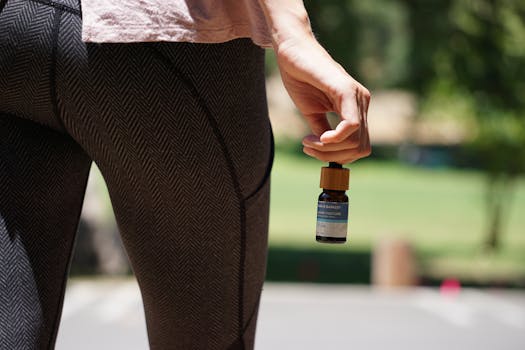
Tetrahydrocannabinolic acid, often referred to as THCa, is a non-intoxicating cannabinoid found in raw cannabis plants. Despite being part of the cannabis family, it is unique due to its lack of psychotropic effects when consumed in its raw form. THCa only transforms into THC, the compound infamously known for its psychoactive impacts, when subjected to a process called decarboxylation, which typically involves heat or sunlight exposure.

The primary distinction between THCa and THC lies in their chemical structures and resultant effects on the body. THC is responsible for eliciting a high sensation, interacting with cannabinoid receptors in our brain and nervous system. On the other hand, THCa is non-euphoric, and does not produce a high when consumed in its raw form. However, it's crucial to note that upon being subjected to decarboxylation, THCa transforms into THC, releasing the psychoactive properties hidden within.
Decarboxylation is a heat-driven process that transforms THCa into THC, enabling its psychoactive properties. Methods used for the decarboxylation of THCa range from smoking, vaping, dabbing to cooking/baking, and even exposure to sunlight. The application of heat allows the cannabinoid to lose a carboxyl group and transition from its acid state (THCa) to its potent state (THC).

Despite its non-psychoactive nature, THCa has potential therapeutic benefits that include anti-inflammatory, neuroprotective, and anticonvulsant properties. It has demonstrated potential for pain and nausea management, providing a myriad of benefits without inducing a high. However, it's crucial to underscore that the level of scientific evidence supporting these claims is still developing, and further research is needed to substantiate these therapeutic properties in detail.
Besides smoking or vaporizing, THCa can be consumed in its raw form without causing intoxication. The range of THCa products available today include flowers, diamonds, vape carts, wax, pre-rolls, gummies, and capsules, providing multiple options for users. However, when seeking therapeutic benefits without immediate psychoactive effects, users should understand the importance of decarboxylation and the subsequent transformation of THCa into THC.
THCa derived from hemp is largely considered legal federally given that it contains less than 0.3% THC. Specifically, the detection of THCa in routine drug tests is unlikely. Instead, specialized cannabis compound analysis tests could detect traces of THCa. However, state laws regarding THCa usage can vary significantly, so consumers should familiarize themselves with local regulations before use.
Users should exercise caution when purchasing and using THCa products, due to concerns about inconsistent potency, contamination, and inadequate labeling. Additionally, there are valid safety considerations, potential legal implications and a lack of consumer protection laws in some areas. As such, individuals should opt for products from reputable sources that provide transparent information about their items.
Like many substances, THCa can be misused, leading to potential negative impacts on health. Changes in mood, sensory perception, and physical symptoms such as dry eyes or an elevated heart rate could signal THCa abuse. Treatment options for such misuse are available through personalized programs that may includes therapy and treatment for co-occurring disorders.
Understanding the dynamics of THCa, from its properties and potential benefits to the method of consumption and legal implications, can provide consumers with a foundation for informed decision-making when using cannabis products. With ongoing research and increased knowledge, our perspective on and application of cannabinoids like THCa is bound to evolve over time. Be sure to stay updated and approach usage with moderation in mind.